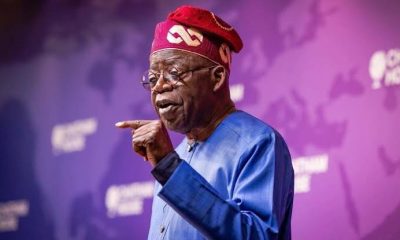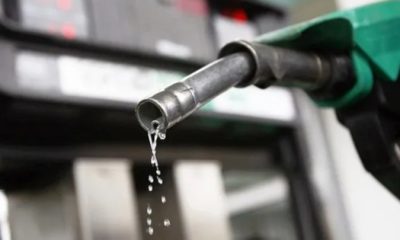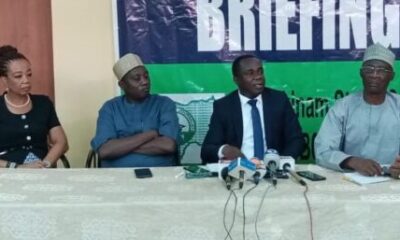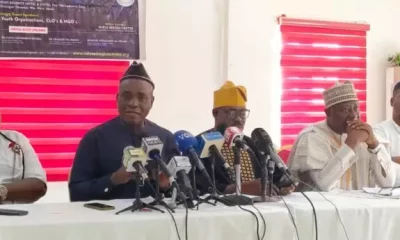Headline
Marketers Struggle To Raise N10bn For New Petrol Orders
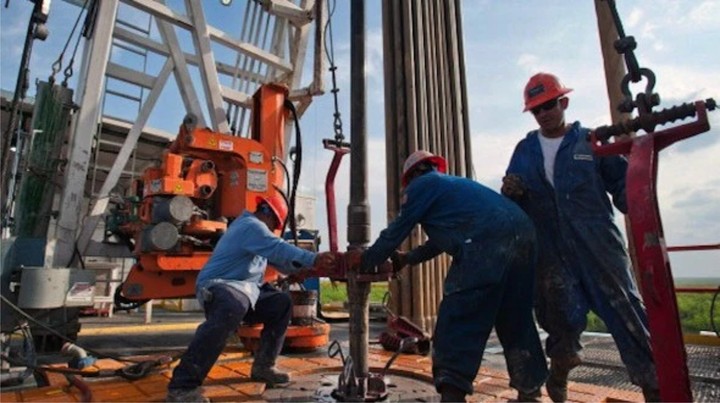
Many depot owners may soon shut down their facilities due to the inability to meet the new financial requirement of about N10bn by the Nigerian National Petroleum Company Limited as the cost of lifting fuel from its ships.
Many filling stations in Lagos State were not selling products to the public.
Sources at the depots told The PUNCH that depot owners were struggling to raise between N5b-N10bn to make new orders from the NNPCL.
“NNPCL has enough stock in-country and we still buy from them pending when arrangements would be made for us to start ordering our products ourselves. Now, we have to raise about N10bn, some N5bn depending on the volume of the order to be able to access new products,” the sources said.
He added that the amount was in addition to the payment already made before the increase in the price of petrol.
The National Controller, Operations of the Independent Petroleum Marketers Association of Nigeria, Mike Osatuyi, told The PUNCH that the affected stations did not have products due to the increase in the prices of products at the depots.
According to him, filling station owners are currently required to have between N22.5m and N23m to buy a truck of petrol, adding that one truck was sold for N8m before May 29.
A former Chairman of the Major Oil Marketers Association of Nigeria, Tunji Oyebanji, also told The PUNCH that 33, 000 metric tonnes of petrol at depots had shut up to as high as N21m.
The PUNCH learnt that many depot owners currently do not have stock as they had exhausted their stocks before President Bola Tinubu announced the removal of the petrol subsidy on May 29.
“Many depot owners would not be able to access funds because banks are skeptical of granting loans to the downstream sector,” a source added.
The pump price of petrol, which was between N179 and N200 per litre before subsidy removal, has skyrocketed to over N500 per litre after the President’s pronouncement.
Oyebanji told The PUNCH that many smaller firms in the downstream sector would be forced to shut down operations and may be bought over by bigger ones due to their inability to meet up with the huge financial obligations to secure new products from the NNPCL.
Sources at the NNPCL told The PUNCH that the company had been having challenges accessing forex from the Central Bank of Nigeria, since the removal of petrol subsidy.
“Since full deregulation started, CBN has stopped giving us forex. We also have to source for dollars just like every other player in the downstream sector. So, depending on the dollar rates and other market indices, we import and have to also factor other costs before we sell to marketers,” the sources noted.
Headline
EFCC bars dollar transactions, orders embassies to charge in naira

The Economic and Financial Crimes Commission has barred foreign missions based in Nigeria from transacting in foreign currencies and mandated them to use Naira in their financial businesses.
The EFCC has also mandated Nigerian foreign missions domiciled abroad to accept Naira in their financial businesses.
The anti-graft agency said the move is to tackle the dollarisation of the Nigerian economy and the degradation of the naira
The Commission, therefore, asked the government to stop foreign missions in Nigeria from charging visa and other consular services in foreign denominations.
The EFCC gave the advisory in a letter to the Minister of Foreign Affairs, Amb. Yusuf Tuggar, for onward transmission to all foreign missions in the country.
In the letter, the EFCC said it issued the advisory because the practice of paying for consular services in dollars was in conflict with extant laws and financial regulations in Nigeria.
In a letter dated April 5, 2024, which was addressed to the Minister of Foreign Affairs, Ambassador Yusuf Tuggar, titled: “EFCC Advisory to Foreign Missions against Invoicing in US Dollar,” the EFCC Chairman, Ola Olukoyede expressed dismay over the invoicing of consular services in Nigeria by foreign missions in dollars.
The EFCC cited Section 20(1) of the Central Bank of Nigeria Act, 2007, which makes currencies issued by the apex bank the only legal tender in Nigeria.
The letter read, “I present to you the compliments of the Economic and Financial Crimes Commission, and wish to notify you about the commission’s observation, with dismay, regarding the unhealthy practice by some foreign missions to invoice consular services to Nigerians and other foreign nationals in the country in United States dollar ($).
“It states that ‘the currency notes issued by the Bank shall be the legal tender in Nigeria on their face value for the payment of any amount’.
“This presupposes that any transaction in currencies other than the naira anywhere in Nigeria contravenes the law and is, therefore, illegal.”
The commission further stated that the rejection of the naira for consular services in Nigeria by certain missions, along with non-compliance with foreign exchange regulations in determining service costs, is not just unlawful but also undermines the nation’s sovereignty embodied in its official currency.
The letter continues: “This trend can no longer be tolerated, especially in a volatile economic environment where the country’s macroeconomic policies are constantly under attack by all manner of state and non-state actors.
“In light of the above, you may wish to convey the commission’s displeasure to all missions in Nigeria and restate Nigeria’s desire for their operations not to conflict with extant laws and regulations in the country.”
Diplomatic sources said yesterday, May 10, that some embassies were wondering whether the EFCC’s advisory represented the position of the Federal Government.
Headline
Prince Harry visits sick Nigerian soldiers in Kaduna

Prince Harry and his team visited the 44 Nigerian Army Reference Hospital in Kaduna to interact with wounded soldiers who are receiving treatment.
The Duke of Sussex is in Nigeria with his wife to champion the Invictus Games, which Harry founded to aid the rehabilitation of wounded and sick servicemembers and veterans.
Nigeria joined the Invictus Community of Nations in 2022 becoming the first African country to join.
Prince Harry’s visit to Kaduna came 68 years after his late grandmother Queen Elizabeth II visited the state during the time of the late Premier of Northern Region Sir Ahmadu Bello.




-

 Headline5 days ago
Headline5 days agoPrince Harry visits sick Nigerian soldiers in Kaduna
-

 Entertainment5 days ago
Entertainment5 days agoAMVCA Cultural Day: BBNaija’s Neo, Venita win Best Dressed Male, Female
-

 Metro5 days ago
Metro5 days agoEx-Sports Minister laments after hospital neglected him for hours over N80000 deposit
-

 Headline5 days ago
Headline5 days agoEFCC bars dollar transactions, orders embassies to charge in naira

